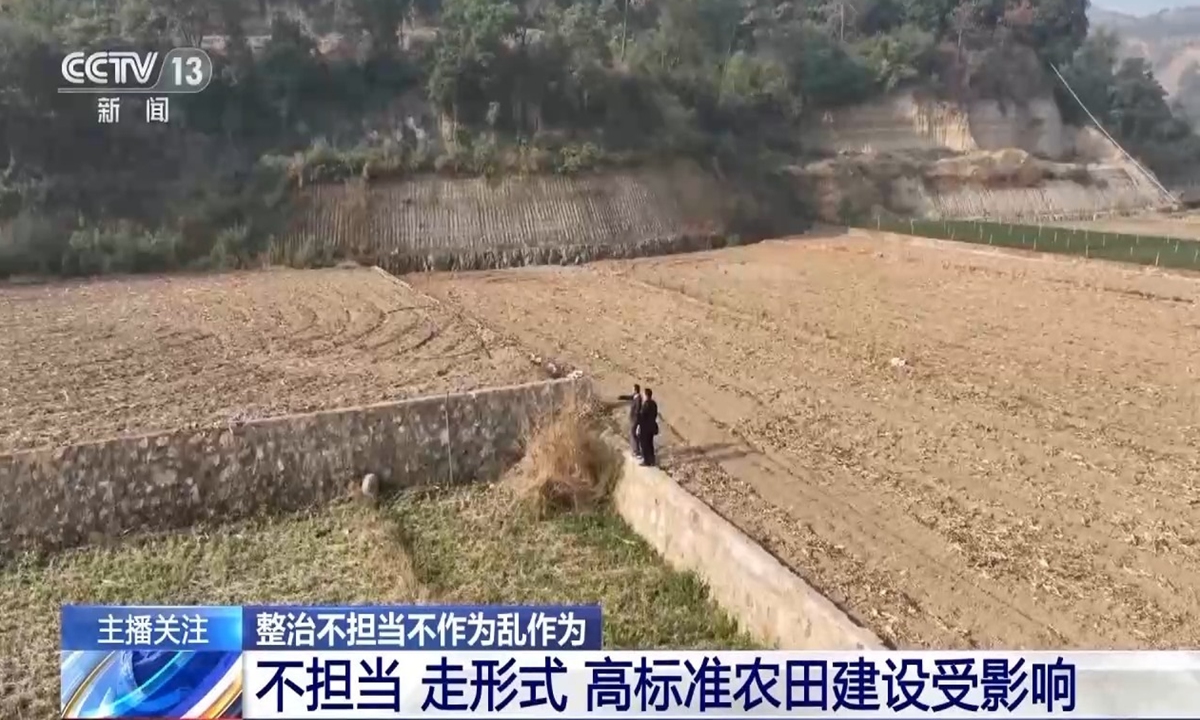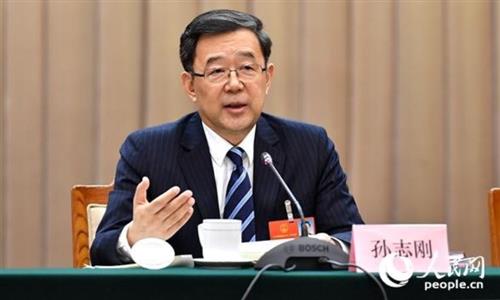Sichuan official punished for ignoring farmland quality issues as China closely monitors acts of ‘lying flat’

A CCTV screenshot showing the farmland with quality issues. Photo: CCTV
A government official from Southwest China's Sichuan Province has been punished for turning a blind eye to quality issues during the construction of high-standard farmland. The punishment comes as the country has been closely monitoring duty-shirking by Communist Party of China (CPC) and government officials throughout 2023, targeting perfunctory attitudes toward passing the buck and rigidly implementing policies without considering specific conditions, acts which have been strongly criticized by the public.
According to the anti-graft authority in the city of Panzhihua in Sichuan, it received reports of problems in August that a farmland construction project completed a year before had shallow topsoil and insufficiently strong cement mortar, CCTV News reported on Monday.
After on-site investigation, the watchdog found that the quality issues did exist and it was Sha Wanlin, who was the head of the local agricultural mechanization technology promotion station, which deliberately neglected these known issues.
Thinking that correcting these troublesome issues would take a long time and that there was nothing to worry about as local villagers and construction workers would be handling the farmland project, Sha approved the project completion and untruthfully told the Panzhihua agricultural authority that the issues had been solved, said the watchdog.
Given that Sha's duty shirking has affected the cultivation of grain and other agricultural products and damaged the immediate interests of the public, Sha was given a disciplinary warning within the Party in early November.
Sun Dawei, a deputy secretary-general of the China Anti-corruption Research Center of the Chinese Academy of Social Sciences, pointed out that this is just another act of ensuring pointless formalities and bureaucracy.
Duty shirking seems to have no direct harm compared with corruption and bribery, but in the long run, it not only delays the completion of necessary tasks and leads to missed development opportunities, but also undermines the relationship between the CPC, government officials and the public, said Sun.
Besides inadequate performance of duties, cases of passing the buck and brutal implementation of policies were also revealed.
The discipline inspection authority in Central China's Hubei Province released details of six typical cases of cadre duty shirking on November 1. One case involving a real estate registration center saw a staff member surnamed Shang mechanically and rigidly execute relevant regulations and turn down an individual's application four times despite knowing the person was seriously ill.
From May to June 2022, the Cultural and Tourism Bureau and the Commerce Bureau of Weihai in East China's Shandong Province passed the buck when it came to refunding prepaid consumption cards for 52 days. It was not until the intervention of disciplinary inspection and supervision authorities that the issue was finally resolved. Relevant officials were punished in July.
Whether it is Party discipline or national law, both clearly reject officials not taking responsibility nor taking action. Party members and cadres who adopt a "Buddhist-style" mentality or a "lying flat" state of mind, or a "tanking" attitude toward work have clearly violated Party discipline and national law, said Song Wei, a deputy director of the Beijing Research Base for Anti-Corruption and Integrity Building.
Their thinking of "doing more means more mistakes, doing less means fewer mistakes, and doing nothing means no mistakes" reflects the lack of awareness in their public duties and also a sense of privilege and an official-centric mindset, Song pointed out.
Sun suggested improving regulations for the selection and appointment of cadres by strengthening the focus on practical work and achievements. Sun said a sound system for allowing and correcting mistakes should also be set up to relieve the psychological concerns of cadres who are willing and capable of doing more and better work for the public.
Global Times



